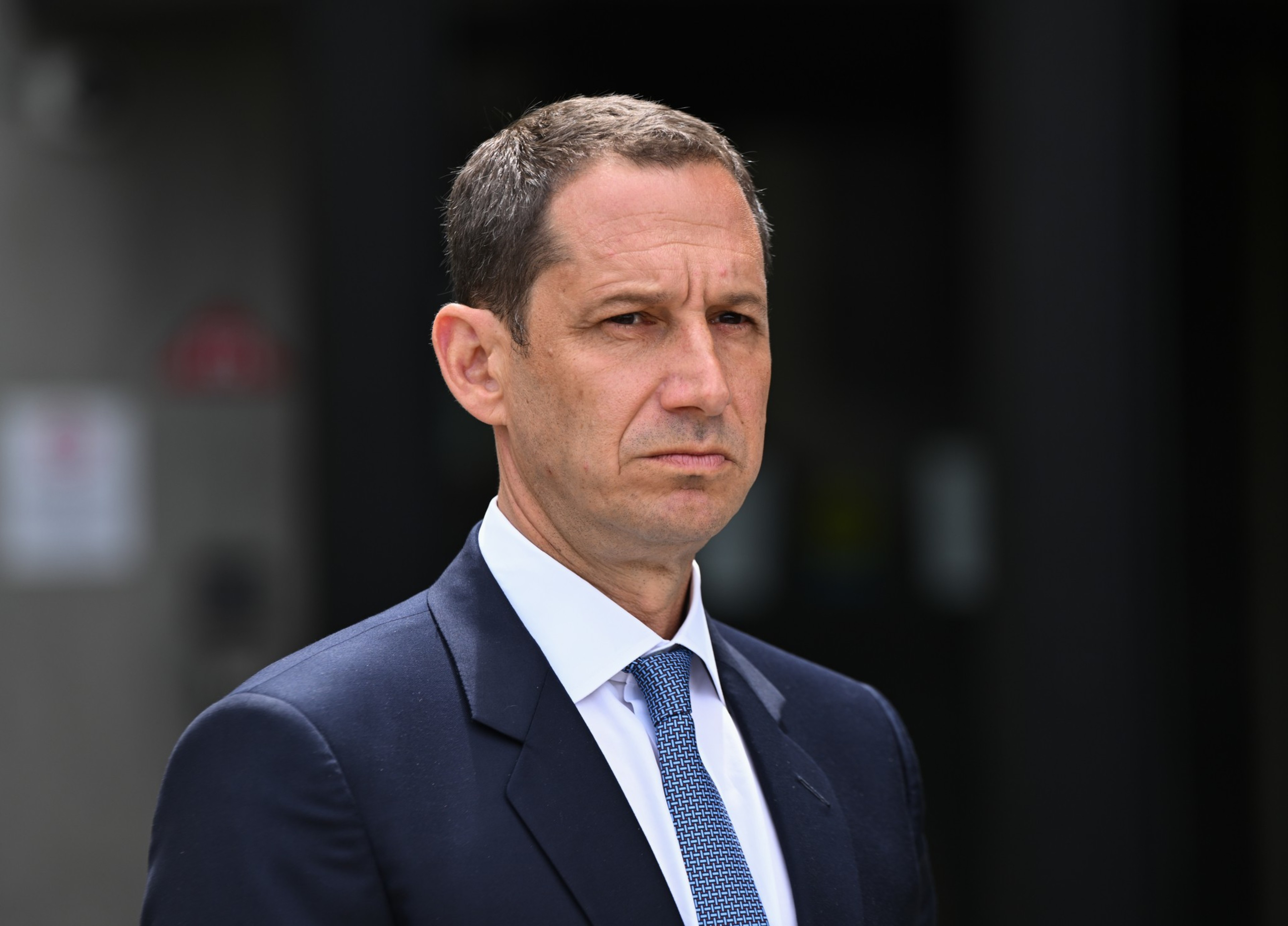Mayor Daniel Lurie slammed Gov. Gavin Newsom on Thursday for vetoing a bill that would have authorized California to set aside funding specifically for sober-housing projects.
Assembly Bill 255, written by San Francisco Assemblymember Matt Haney, would have allowed up to 10% of the state’s homeless funding to go toward “recovery-focused” housing, which emphasizes abstinence as residents recover from drug addiction.
Proponents of the bill argue that sober housing is an integral but missing component of California’s response to the twin crises of homelessness and drug addiction. They say it’s hard to find funding for abstinence programs under the state’s Housing First framework, which promotes sheltering people without preconditions.
Meanwhile, hundreds of San Franciscans have died of overdoses in recent years while living in the city’s supportive housing facilities, which critics say are rampant with drug use.
Lurie has worked to address the issue since taking office. Last month, the city opened its first sober shelter, and several similar programs are in the planning stages. Newsom’s veto could halt that progress, Lurie said.
“Our administration has fundamentally transformed the city’s response to that crisis, but we still have a long way to go and need support from the state to continue moving forward,” Lurie said in a statement. “We are starting to see progress, but the governor’s veto of this bill threatens to stop that progress in its tracks.”
In his veto letter (opens in new tab), Newsom said the legislation would complicate the funding of housing projects and suggested that the bill would have created a “duplicative and costly new statutory category.”
Newsom said the state “remains committed to advancing recovery housing” within the Housing First framework.
“I encourage the author and stakeholders to continue working with my administration to strengthen these options in ways that complement, rather than complicate, the state’s approach,” he wrote.
But proponents of the bill contest that there is no clear pathway for sober housing projects under the state’s limitations. In a statement, Haney called Newsom’s veto “disappointing.”
“This bill was about giving people in recovery a real choice to have safe, sober housing when they need it,” he said. “Californians who are working hard to stay sober are often forced into housing where drug use is allowed, and that puts their recovery and their lives at risk.”
Supervisor Matt Dorsey, a moderate Democrat and advocate of abstinence-based housing, said Newsom’s veto has caused confusion.
“If the governor is seeing something that we’re not, fine. But let’s see what he puts in the budget,” Dorsey said. “It’s definitely disappointing. … I feel like this could’ve clarified the law, and now I feel like there’s less clarity than before.”
Haney also called on Newsom to clarify whether “recovery housing is fully allowed under current law” and to “authorize the use of state funds for these facilities.”
“Without that guidance, the state will leave housing providers paralyzed, local governments confused, and people in recovery without the homes they need to stay alive and thrive,” he said.
